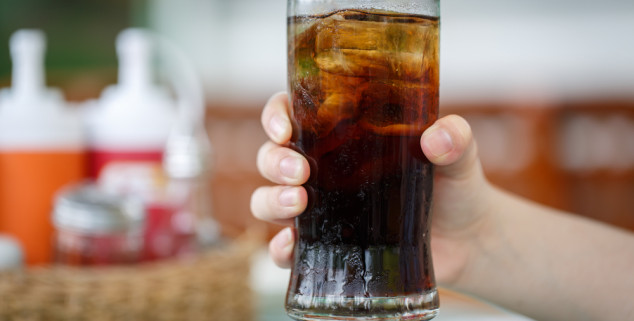Opinion
A flawed policy: warning labels on sweetened beverages
 A soft drink waiting to be consumed. (Photo: Aiaikawa, vis Shutterstock)
A soft drink waiting to be consumed. (Photo: Aiaikawa, vis Shutterstock)After several failed attempts to impose statewide taxes on sweetened beverages like sodas and fruit drinks, a bill was circulated last year that would have required warning labels on hundreds of beverages, which would have read: “STATE OF CALIFORNIA SAFETY WARNING: Drinking beverages with added sugar contributes to obesity, diabetes, and tooth decay.” Fortunately, common sense prevailed and the bill died in committee; but it has been resurrected this year – S.B. 203 (Monning, D-Carmel).
Even the proponents admitted that the label would not be effective, but this is all about trying to blame one thing people consume for a much more complicated problem that demands a better solution. The beverage industry has done a lot to educate consumers about caloric content and offer a broad array of beverage choices.
Over the past decade, added sugar intake from sugar-sweetened beverages decreased by 37 percent. Meanwhile, diabetes has spiked meteorically.
Like last year’s effort, S.B. 203 is bad public policy, riddled with confusing exemptions. For instance, milk-based products like Frappuccinos® and lattes would be exempt from warning labels, even though some of these products contain as much sugar and more calories than a soda. Fountain sodas purchased at a restaurant with table service, waiters and waitresses are also exempt, but places like bars and fast food restaurants are not.
Furthermore, the bill conveniently ignores the fact that Americans consume nearly twice as many calories from sweets and desserts than from sweetened beverages – items like cupcakes, donuts, and processed foods. Arbitrary loopholes and exclusions will only confuse consumers, rather than help them make informed decisions.
S.B. 203 fails to look at the big picture when it comes to health. Over the past decade, added sugar intake from sugar-sweetened beverages decreased by 37 percent. Meanwhile, diabetes has spiked meteorically. It is counterproductive and misleading to suggest that focusing solely on soda and other sugar-sweetened beverages is the silver bullet solution to this complex issue. Diseases, like Type 2 diabetes, and obesity, have multiple risk factors, including genetics, age, stress, and even lack of sleep.
Of the top ten least obese states in the country, California ranks number four. Californians have made promoting healthy lifestyles a priority. Across the state, dozens of innovative public-private partnerships have emerged with the purpose of improving health statewide. Californians know the path to a healthier lifestyle does not come with a ‘cure-all’ solution. Improved health requires a more complete approach, combining everyday activities like jogging, hiking, and yoga with healthier meals and more nutrition-conscious choices.
The beverage industry is doing our part by taking proactive measures to help consumers. In fact, last fall we launched Balance Calories, a national multi-year effort, in partnership with the Alliance for a Healthier Generation, to reduce beverage calories consumed per person by 20 percent by 2025 through increasing the availability of no- and lower-calorie options and smaller portion sizes. We also recently launched our Clear on Calories initiative in support of First Lady Michelle Obama’s “Let’s Move!” anti-obesity campaign, which added clear calorie labels to the front of every can, bottle and pack we produce, putting meaningful nutrition information right at customers’ fingertips.
Addressing obesity and diabetes is more complicated than a warning label, and it’s misleading to suggest legislation impacting some beverages will offer a simple solution to complex health issues. Now is the time for a holistic approach to fighting obesity and diabetes – one that involves every Californian not just one industry. We are confident that this year’s infusion of new members will help keep the State Legislature on track to only pass effective public policy for promoting healthy lifestyles and reject misguided attempts, like S.B. 203.
—
Ed’s Note: Bob Achermann is the executive director of CalBev, which represents the non-alcoholic beverage industry in California.
Want to see more stories like this? Sign up for The Roundup, the free daily newsletter about California politics from the editors of Capitol Weekly. Stay up to date on the news you need to know.
Sign up below, then look for a confirmation email in your inbox.

Hi – Where is your source regarding the 37% decrease in added sugar intake from SSBs in the last 10 years? Thanks.
[…] CalBev, a group that represents the beverage industry in California, explains in a recent piece in California Weekly that a proposed warning label in his state is “riddled with confusing exemptions. For instance, […]
You are right,Bob–Let’s keep it simple and do away with added sugars in manufactured food period ! Couldn’t hurt– Oops–
Oh, that’s right–such food is just all about adding fat,sugar,salt or caffeine mostly.